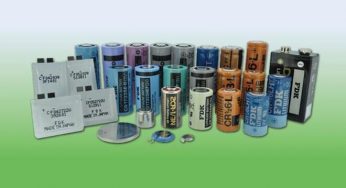Cathode material boosts all-solid-state battery dev’t
Article By : Fujitsu

FDK and Fujitsu have developed a lithium cobalt pyrophosphate cathode, paving the way for all-solid-state batteries with higher voltage and capacity.
In recent years, the specifications required for batteries are becoming increasingly diverse, and, in particular, there is increasing interest in high energy density and safety performance. While there is active progress on improving lithium-ion and other existing batteries, development work is advancing on various types of next-generation batteries with the potential to exceed the performance of existing batteries, and all-solid-state batteries are attracting attention as next-generation batteries with superior safety performance.
FDK and Fujitsu Laboratories have jointly developed lithium cobalt pyrophosphate (Li₂CoP₂O₇) that has high energy density, for the cathode material of all-solid lithium-ion batteries. This material enables the development of all-solid-state batteries with higher voltage and higher capacity, according to Fujitsu. FDK has been working on the development of all-solid-state batteries, with emphasis on energy density, safety performance and long battery life.
The energy of a battery is a function of its voltage and capacity, and the development of an electrode material with high voltage and high capacity is required to create a battery with high energy density.
![[FDK-Fujitsu Li2CoP2O7 battery fig1 (cr)]](/wp-content/uploads/sites/2/2020/04/FDK-Fujitsu_Li2CoP2O7_battery_fig1_cr.jpg)
Figure 1: Charge/discharge curves of the new cathode material: The black line represents the charge curve, while the red line shows the discharge curve. The lithium cobalt pyrophosphate material can operate at charge/discharge voltages of over 5V that is beyond the limits of conventional lithium secondary batteries.
Using FDK's Computer Aided Engineering (CAE) technology and Fujitsu Laboratories' materials formation technologies, FDK and Fujitsu Laboratories succeeded in developing the cathode material, which has approximately 1.5 times the energy density of existing cathode materials for lithium-ion batteries. Through computational physics, FDK and Fujitsu Laboratories have found that this material, when applied to all-solid-state batteries, is capable of operating with twice the energy density of existing cathode materials used in lithium-ion batteries.
Cathode material with highest energy density
New Li₂CoP₂O₇: 860Wh/kg
Conventional materials
LiFePO₄: 530Wh/kg (actual available capacity)
LiCoO₂: 570Wh/kg (actual available capacity)
![[FDK-Fujitsu Li2CoP2O7 battery fig2 (cr)]](/wp-content/uploads/sites/2/2020/04/FDK-Fujitsu_Li2CoP2O7_battery_fig2_cr.jpg)
Figure 2: Graph illustrates the comparison of the energy densities between the new cathode material and the conventional cathode materials.
While working to further raise the performance of this material, the companies will continue development targeting a compact and safe all-solid-state battery that can be used in IoT applications, wearables and mobile devices.
Subscribe to Newsletter
Test Qr code text s ss


